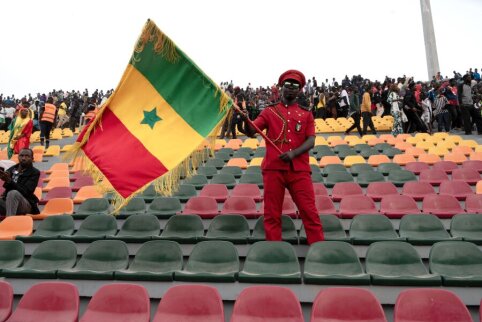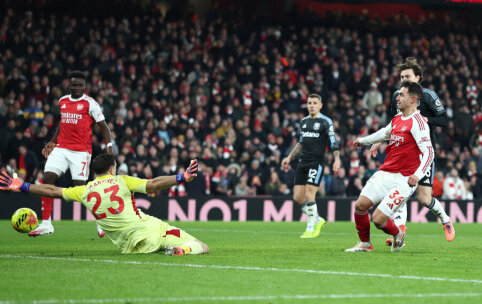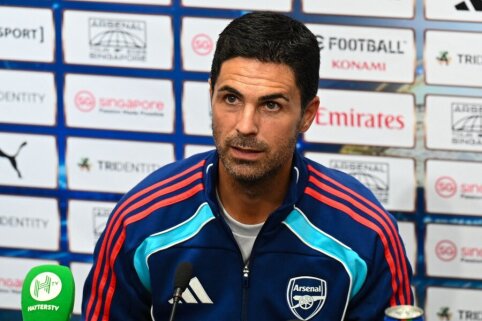![Article: Football psychology, or when will Lithuanians play in the World Cup? [Part I]](https://www.eurofootball.com/img/uploaded/w900/2023/08/56545.jpg) © EuroFootball.com
© EuroFootball.com
EuroFootball.com readers are presented with a series of articles by publicist and writer Vilius Litvinavičius on the topic "Football Psychology, or When Will Lithuanians Play in the World Cup?". In it, the author analyzes the factors that prevent Lithuanians from feeling like a country that has full-fledged football, with unusual arguments trying to refute some facts, forcing the reader to look at certain simple things more critically. We present the first part of the series.
If you were to find a country on the world map whose football fans would not want their national team to play in the world or continental finals, such a discovery would shock even Columbus. Despite there being no more "white spots" on the maps. Indeed, such a country seemed to exist, at least for a long time it was claimed that Lithuanians, like the plague or the Third World War, hate football and generally wish that the national team, along with the head coach, would be locked up in Lukiskes. Let's say that's what the Martians claimed, with some secret goals, the conspiracy failed, what was wanted is unclear, but today, explaining those Martian ideas would mean being shut down, if not in Lukiskes, then at least in a psychiatric institution at Vilnius, Vasaros 5. In general, the chances of the national team playing in the World Cup become the only criterion of the country's football. And all football criticism, both in Lithuania and in many similar countries occupying modest places in the football hierarchy, is focused precisely on the world championships. Weak club football is remembered only when the national team plays exceptionally poorly, being evaluated based on their modest capabilities, in other words, there's no point comparing it to Spain or England, let's be realistic. Even a kind of anecdote that the Lithuanian national football team is the 3014 World Cup winner reflects the same psychological stereotype. Maybe some of the readers of this article might live to see those times?
But for now, let's start with some basics. Why didn't we make it to the 2010 World Cup held in South Africa? Maybe it's just a utopia? Because it often seems so close... But this delicate legend based on very serious arguments. Utopia - The Nightmare of the Renaissance. In Europe in the 14th-16th centuries, in the so-called Renaissance period, it was popular to write utopias, that is, philosophical-literary works in which it was explained how things should be, but it was forgotten to teach how to do it. The Catholic saint and English writer Thomas More published his famous work "Utopia" in 1523. Of course, there was no advice from Algimantas Liubinskis on what to do for the Lithuanian national team to break into the World Cup. That's another matter. Having seen the concept that the Earth is the center of the Universe collapse, enveloped within a glass or emerald celestial mantle where angels fly, it became popular to describe what paradise on earth should be like. Since nothing good came from these writings, a new fashion emerged - writing dystopias in which it would be logically argued why it was impossible. The bishop and English writer Jonathan Swift, in 1717, published his famous novel "Gulliver's Travels," which became the standard of dystopia.
So from now on our thinking oscillates between the two English Catholic church figures - More and Swift. We create utopias, but logically argue against them. So, let's put Lithuanian football between these two English writers. Logical because football is also an English invention. The utopia of football is clear to all of us. It is what we would want as normal fans. Now let's move on to the anti-utopian arguments that actually turn our dreams into utopias.
First, Lithuania is a "basketball country," a new "pagan" Lithuanian religion, so football will never be able to compete with the popularity of basketball. Second, Lithuania is a very small country, with just 3 million inhabitants. If there were at least 20 million Lithuanians, maybe someone would come out. Third, our club football level is very low. In fact, if some A-League teams are in trouble... It's only the Lithuanian Football Federation Cup tournaments where lower division teams, well, if not defeated by two-digit results. This is not like France, where it's hard to remember a case where at least two teams from a lower division did not make it to the cup quarter-finals, even from amateur leagues, which would be the fourth or sixth division, sometimes even lower. Just think of the 2000 French Cup final where the "Calais" team, playing in the fourth division, reached it. Eliminating Lyon "Olympique," the modest "Libourne," from the same name (Liburno) small town, then also played in amateur division.
So in this situation it's simply impossible to qualify for the World or European Championships. One or two better results... And that's it! Therefore, the irrefutable English argumentation shows that Lithuania is unlikely to become the world football champion in 3014, so we can safely die.























